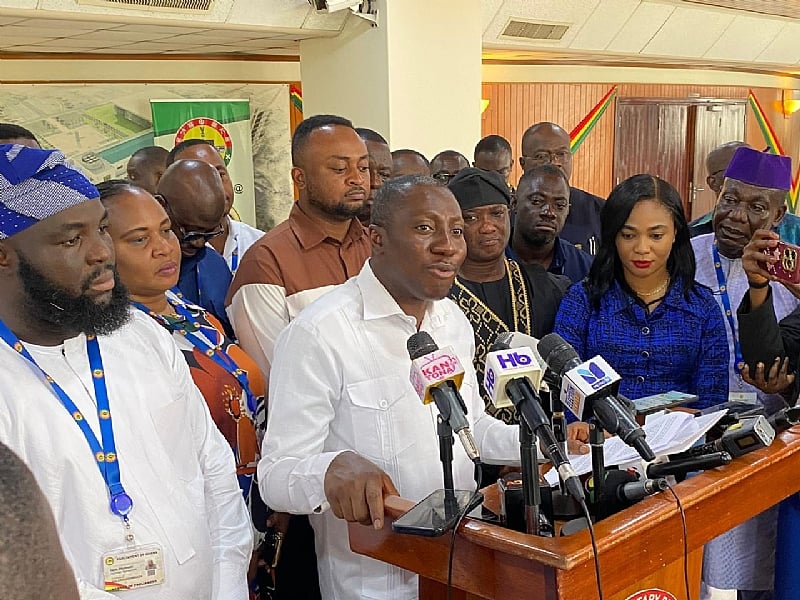The Minority caucus in Ghana’s Parliament has vehemently criticized Attorney General and Minister for Justice, Dr. Dominic Ayine, for his decision to enter a nolle prosequi in the Republic v Duffuor case, effectively halting the prosecution of individuals implicated in the collapse of uniBank. Opposition lawmakers argue that this action undermines the pursuit of justice and represents a politicization of the prosecutorial process. They have demanded the Attorney General reverse his decision and recommence legal proceedings against those allegedly responsible for the bank’s downfall. This controversy centers around the accountability for the significant financial losses incurred by uniBank, a matter of considerable public interest and concern.
The Minority’s contention is that the Attorney General’s decision to discontinue the prosecution is unjustified and raises serious questions about the government’s commitment to holding those responsible for the bank’s collapse accountable. They accuse Dr. Ayine of acting in a manner that shields influential individuals from facing the legal consequences of their actions. The Minority’s spokesperson, Kwame Anyimadu-Antwi, Ranking Member on Parliament’s Constitutional and Legal Affairs Committee, emphasized the need for transparency and accountability in this matter, calling for the Attorney General to publicly explain his decision. The Minority’s distrust of the Attorney General’s motives is evident in their call for investigations by the Legal Council and Bar Association into potential ethical breaches.
The Attorney General’s decision to halt the prosecution was seemingly based on the claim that substantial assets had been recovered from those implicated in the bank’s collapse. Dr. Ayine stated that landed properties valued at over GH¢824 million had been surrendered to uniBank as part of debt recovery efforts. He further asserted that GH¢500 million had already been recovered out of the GH¢1.2 billion owed by direct beneficiaries. However, the Minority remains unconvinced by this explanation, arguing that the recovery of assets does not absolve the accused of their alleged criminal conduct. They maintain that prosecution is necessary to ensure accountability and deter future financial malfeasance.
The dispute highlights a fundamental disagreement about the appropriate response to the uniBank collapse. The Attorney General’s position emphasizes the importance of asset recovery and minimizing further financial losses. He appears to suggest that the retrieval of substantial assets serves as a sufficient form of redress. In contrast, the Minority prioritizes accountability through legal proceedings, arguing that prosecution is essential to upholding the rule of law and preventing impunity. They believe that simply recovering assets without holding individuals criminally responsible for their actions sets a dangerous precedent.
The Minority’s strong stance signals their intent to pursue this matter further. They have issued a clear warning to the Attorney General: if the decision to discontinue the prosecution is not reversed, they will consider legal action to challenge it. This threat underscores the seriousness with which the Minority views this issue and their determination to ensure accountability for the uniBank collapse. The stage is set for a potential legal battle between the Minority caucus and the Attorney General, further intensifying the political and legal ramifications of this already contentious case.
This controversy surrounding the uniBank collapse and the subsequent nolle prosequi raises broader questions about the independence of the judiciary, the role of political influence in legal proceedings, and the balance between asset recovery and criminal accountability in cases of financial malfeasance. The unfolding events will likely have significant implications for Ghana’s legal and political landscape. The public scrutiny of this case underscores the importance of transparency and due process in upholding public trust and ensuring accountability for financial crimes. The clash between the Attorney General and the Minority caucus reflects a deep-seated concern about the integrity of the justice system and the need for robust mechanisms to combat financial impropriety.


